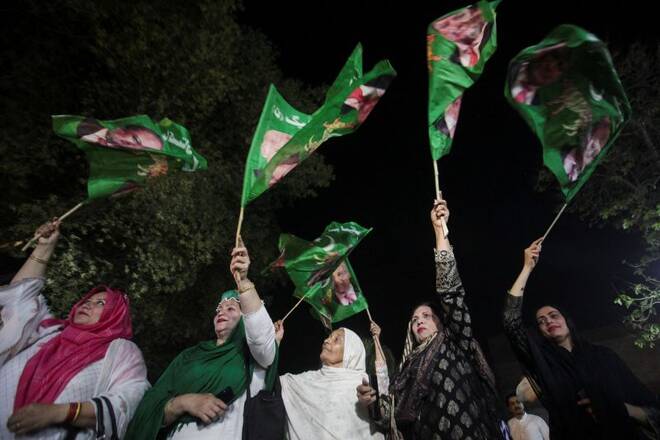Advertisement
Advertisement
Pakistan’s new government facing severe economic challenges, aide says
By:
By Asif Shahzad ISLAMABAD (Reuters) - Pakistan's new government is facing the daunting task of managing a stuttering economy with huge deficits, an aide to new Prime Minister Shehbaz Sharif said on Tuesday.
By Asif Shahzad
ISLAMABAD (Reuters) – Pakistan’s new government is facing the daunting task of managing a stuttering economy with huge deficits, an aide to new Prime Minister Shehbaz Sharif said on Tuesday.
Sharif, 70, the younger brother of former premier Nawaz Sharif, was elected as prime minister on Monday followed a week-long constitutional crisis after parliament ousted Imran Khan in a no-confidence vote.
“Imran Khan has left a critical mess,” Miftah Ismail, who is likely to be Sharif’s finance minister, told a news conference in Islamabad, adding the suspended talks with the International Monetary Fund (IMF) would be resumed as a priority.
“We will restart talks with the IMF,” he said.
Ismail repeated Sharif’s concerns raised in his maiden speech in parliament at what he described as record deficits his government will inherit from Khan, who was accused by the opposition of mismanaging the economy.
Sharif set up a National Economic Advisory Council in his first meeting on Tuesday.
The IMF has suspended talks ahead of the seventh review of a $6 billion rescue programme agreed in July 2019.
Pakistan’s current account deficit is projected at around 4% of GDP for the 2022 fiscal year (FY), the country’s central bank said last week, while foreign reserves dropped to $11.3 billion as at April 1, compared with $16.2 billion less than a month earlier.
The central bank last week hiked key interest rates by 250 basis points to 12.25% in an emergency decision, the biggest hike in decades, citing deterioration in the outlook for inflation and an increase in risks to external stability, heightened by the Russia-Ukraine conflict, as well as local political uncertainty.
The bank also revised average inflation forecasts upwards to slightly above 11% in FY22, which ends in June.
(Reporting by Asif Shahzad in Islamabad; Editing by Alasdair Pal and Alex Richardson)
About the Author
Reuterscontributor
Reuters, the news and media division of Thomson Reuters, is the world’s largest international multimedia news provider reaching more than one billion people every day. Reuters provides trusted business, financial, national, and international news to professionals via Thomson Reuters desktops, the world's media organizations, and directly to consumers at Reuters.com and via Reuters TV. Learn more about Thomson Reuters products:
Did you find this article useful?
Latest news and analysis
Advertisement
